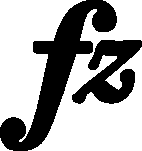



In FE (→EE), bars 88-133 (exposition) and corresponding bars 200-245 (reprise) differ in the number of performance markings. This phenomenon probably has its origin already in the notation of the autograph – due to the diversifications introduced in the reprise (actually not too numerous), Chopin probably wrote it in extenso. Writing very similar music another time must have been tedious, hence the significant reduction in the number of performance markings. Chopin would use such a procedure concerning notation in other pieces – cf., e.g. accents written only in the first two bars of the Etude in C major, op. 10 no. 1 or accents and slurs only in the first bar in the Prelude in B minor, op. 28 no. 6). Such an approach to notation was probably based on the assumption that the performer would correctly interpret the character of the music already for the first time and would remember the performance manner compliant with it. It also enabled providing all necessary indications, while maintaining a transparent notation. Actually, in the Bolero, gradually decreasing accuracy of markings is visible already earlier, e.g. at the times when the main theme returns within the exposition – cf. the note in bar 122.
The analysis of the notation of the reprise also leads to a conclusion that, although Chopin reminded in it about the most important, characteristic markings, he did not include all organically related to the music's sound image (e.g.  in the L.H. in bars 204 and analog.) or its course (a tempo in bar 230). Therefore, in the main text we suggest adding this kind of indications (in square brackets), since, although the additions seem to result rather from revision, Chopin could have accepted them, while reviewing GE.
in the L.H. in bars 204 and analog.) or its course (a tempo in bar 230). Therefore, in the main text we suggest adding this kind of indications (in square brackets), since, although the additions seem to result rather from revision, Chopin could have accepted them, while reviewing GE.
category imprint: Differences between sources; Editorial revisions
notation: Verbal indications
Back to note